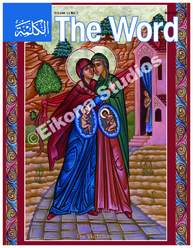Deprecated: trim(): Passing null to parameter #1 ($string) of type string is deprecated in /home/aoiusa/public_html/wp-content/plugins/sexybookmarks/public.php on line 388
Deprecated: trim(): Passing null to parameter #1 ($string) of type string is deprecated in /home/aoiusa/public_html/wp-content/plugins/sexybookmarks/public.php on line 394
Deprecated: trim(): Passing null to parameter #1 ($string) of type string is deprecated in /home/aoiusa/public_html/wp-content/plugins/sexybookmarks/public.php on line 400
The Oxford Handbook of Byzantine Studies. Edited by Elizabeth Jeffreys, John Haldon, Robin Cormack. Oxford University Press (2008)
Byzantium: The Surprising Life of a Medieval Empire by Judith Herrin. Princeton University Press (2008)
Ask the average college student to identify the 1,100 year old empire that was, at various points in its history, the political, commercial, artistic and ecclesiastical center of Europe and, indeed, was responsible for the very survival and flourishing of what we know today as Europe and you’re not likely to get the correct answer: Byzantium.
The reasons for this are manifold but not least is that as Western Europe came into its own in the later Middle Ages and Renaissance, Byzantium gradually succumbed piecemeal to the constant conquering pressure of Ottomans and Arabs. When Constantinople finally fell in 1453 (two years after the birth of the Genoese Christopher Columbus), Europe, now cut off from many land routes to Asian trade, was already looking West and South in anticipation of the age of exploration and colonization. Byzantium, and the Christian East, would fall under Muslim domination and dhimmitude for centuries and its history would fade away before the disinterest, or ignorance, of the West.
This “condemnation to oblivion” as the editors of The Oxford Handbook of Byzantine Studies, describe it, is “no longer quite so true as it once was.” New exhibitions of Byzantine art in Europe and America have been hugely successful in recent years and travel to cities with Byzantine landmarks and archeological sites in Greece, Turkey and the Balkans is easier than ever. Academic centers throughout western Europe and the United States host Byzantine Studies departments, scholarly journals proliferate, and a new generation of scholars has elevated the field from what once was a narrow specialty.
The Oxford Handbook of Byzantine Studies is a useful, one volume reference work that would well serve both the scholar and general reader with an interest in Byzantine culture. The editors have prefaced the volume with a detailed assessment of the Discipline, the state of scholarly learning on everything from art history to weights and measures. Other sections examine Landscape, Land Use, and the Environment; Institutions and Relationships (including the economy); and The World Around Byzantium. Each of the nearly two dozen subheadings include concise chapters with references and suggestions for further readings.
For those interested in the economic life of Byzantium, the Handbook offers an account in Towns and Cities that describes agricultural, commercial and industrial activity, and charts a decline in these areas during periodic invasions by various waves of Slav, Avar, Persian and Ottoman peoples, or bouts of the plague. Where political and military fortunes turned favorable, as in the 8th and 9th centuries, economic life enjoyed a parallel revival. Regional cities became economic centers, places like Thessalonike, Thebes (silk textiles) and Corinth, where glass, pottery, metals and textiles were produced. In his chapter on the Economy, Alan Harvey relates how Constantinople, in the 12th Century, “was clearly a bustling city with a wide range of skilled craftsmen, merchants, artisans, petty traders. There was also a transient population of various nationalities, in addition to the more settled presence of Italian merchants.”
And, because it was a Christian empire, the Handbook has a lot to say about the Byzantine Church, its relations with the Empire, and its developing rivalry with Rome, especially as the papal reform movement took hold in the 11th century. The Emperor and Court chapter in the Handbook should also go some way toward a better understanding of “late ancient state formation,” a subject the editors say has received “remarkably little attention” by historians and political theorists.
Writing in the Handbook’s summary chapter, Cyril Mango catalogs the achievements of Byzantium but also adds that historians have not “credited [the empire] with any advance in science, philosophy, political theory, or having produced a great literature.” Maybe the Byzantines had other ambitions. James Howard-Johnston asserts that the “ultimate rationale” of Byzantium’s existence was its “Christian imperial mission.”
That conviction, widely shared in a thoroughly Orthodox society, was the shaping influence on its foreign policy. It provides the basic, underlying reason for Byzantium’s tenacious longetivity, for its stubborn resistance in the opening confrontation with Islam, and, even more extraordinary, for the resilience shown in the last three and half centuries of decline.
For the general reader, perhaps a better place to begin to illuminate the “black hole” of Byzantine history is Judith Herrin’s fine book, Byzantium: The Surprising Life of a Medieval Empire. A senior research fellow in Byzantine Studies at King’s College London, Herrin sets out to trace the period’s “most significant high points as clearly and compellingly as I can; to reveal the structures and mentalities which sustained it.” Her aim is to help the reader understand “how the modern western world, which developed from Europe, could not have existed had it not been shielded and inspired by what happened further to the east in Byzantium. The Muslim world is also an important element of this history, as is the love-hate relationship between Christendom and Islam.”
Byzantium’s ability to conquer, Herrin writes, and “above all, to defend itself and its magnificent capital was to shield the northwestern world of the Mediterranean during the chaotic but creative period that followed the collapse of the Roman Empire in the West. Without Byzantium there would have been no Europe.” Continue reading
